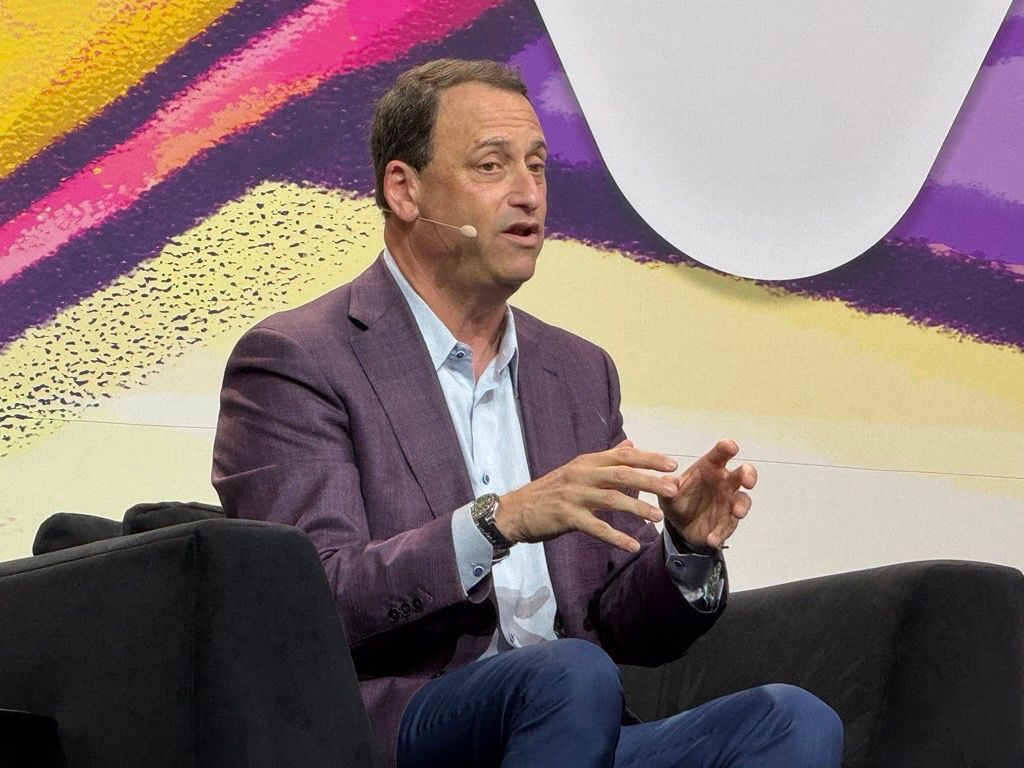How health tech companies drop the ball in pitches to hospitals
Health system executives say AI and other health tech firms routinely take the wrong approach in trying to sell their products. They offered some suggestions for those looking for more success.
Hospital executives have a message for many health tech companies pitching their latest solutions, gadgets and AI technology.
John Couris, president and CEO of Tampa General Hospital, says too many tech companies are focused on their prodcuts and not on the problems hospitals need to solve.

The gist: You’re taking the wrong approach.
Health system leaders shared that sentiment repeatedly at the ViVE digital health conference in Nashville last week. They weren’t castigating all tech companies, by any means, and they didn’t name names.
But they say too many tech companies are touting their latest gear or digital solutions without thinking about how they relate to the actual work done in hospitals.
John Couris, president and CEO of Tampa General Hospital, summed up the mistakes tech companies are making during his address at ViVE.
“If you're out there selling into the industry, here's what we get a lot,” Couris said. “We get a lot of solutions looking for problems. We get very few people who want to understand our problems and our challenges and then bring a solution to us.”
“Selling into the industry, really understand your client, or understand the customer you want to become your client, understand their problems, understand their challenges and then match the solution to the actual problem,” he added.
Couris was hardly alone in this sentiment. Whether it was in public discussions or private chats, hospital executives said the majority of the tech companies trying to sell their products aren’t really zeroing in on problems that health systems are grappling with on a day-to-day basis.
‘We ignore those things’
Dan Shoenthal, vice president and chief innovation officer at MD Anderson Cancer Center, marvels at the number of health tech companies looking to sell their products, and how many aren’t taking the right approach.
“We get probably 50 to 100 emails a week of… ‘I've got the greatest technology. You've never seen it before.’ And I don't know how it's physically possible that there's 100 companies a week that have the greatest technology ever. We ignore those things,” Shoenthal said.
Health tech companies looking to build relationships with hospitals and health systems should “be really, really passionate about the problems you're solving, not the technology itself,” he said.
“The technology is becoming more and more of the commodity,” Shoenthal explained. “The interesting and unique way, and the depth of understanding that you have about the problems that we face on a day-to-day basis, is actually the thing that gets you in the door, is actually what will cause opportunity for you to have conversations with those frontline teams, engage leaders who are making decisions. Leading with technology is a very quick way, probably for all of us to say, ‘This sounds the same as the last email. I'm just going to file it away.’ So really be passionate about the problems you're solving, and less so about the specific technology you're using to solve them.”
Health leaders discuss innovation, AI, and what tech companies should be doing to help hospitals at the ViVE conference in Nashville.

‘Bringing them the wrong thing’
During a conversation on innovation at ViVE, Shoenthal and other digital leaders talked about the problematic pitches of tech companies and how they can do better.
Dr. Margaret Lozovatsky, vice president of digital health at the American Medical Association, said health tech companies should spend more time listening to hospital and health system leaders.
“If there's one thing that I would say to folks that are looking to bring their solutions to a healthcare setting, it would be to listen and to not have any preconceived notions,” Lozovatsky said at ViVE.
“The technology may be solid and it may be really fantastic and might have the potential to change the way we deliver care,” she said. “The devil is usually in the details and integrating technology into a clinical environment is complex.”
Health tech companies, including AI companies, should take some time and rethink their strategy if they’re having trouble gaining the interest of hospitals and health providers.
“If you're bringing something to the clinicians and you can't get them to engage, maybe you're bringing them the wrong thing,” Lozovatsky said. “That's your first lesson. If people don't want to try your technology, then maybe it's not solving a problem that they have, and you may need to think about how to present it in a different way.”
‘Invest in people’
Kiran Mysore, chief data analytics officer of Sutter Health, said it’s important for health tech companies to have an understanding of the workflows in hospitals.
“My advice is, really understand the workflows really well,” Mysore said. “Workflows are very key, because the technology is only one part of the equation. How you integrate it is really important.”
Nasim Eftekhari, executive director of applied AI & data science at City of Hope, said that tech companies should think about more than investing in technology for greater success.
She also pointed to the need to understand the problems of hospitals and clinicians.
“Invest in people,” she said. “Because in 2025 and beyond, it's not about who has the best technology anymore. It's about who knows what problems to solve. And so I would invest in people and in partnerships that can enable bringing together the technology and the people who know the problems.”
Children’s hospitals face complex challenges dealing with disasters
April 18th 2025Pediatric hospitals deal with different factors in weather-related events and other emergencies. Terri Wilson of the Children’s Hospital Association talks about the challenges and the need for more planning and support.
Telehealth faces a looming deadline in Washington | Healthy Bottom Line podcast
February 12th 2025Once again, the clock is ticking on waivers for telemedicine and hospital-at-home programs. Kyle Zebley of the American Telemedicine Association talks about the push on Congress and the White House.